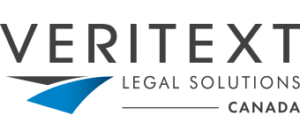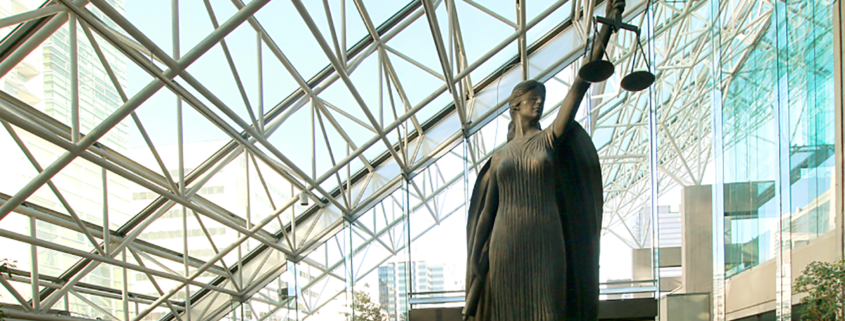Connect Series: Meet Owner, President & Realtime Court Reporter, Christy Pratt!

Over the course of her career Christy has acquired reporting expertise in all areas of litigation, with a special interest in Aboriginal rights and title cases and Charter challenge cases.
She has reported several landmark trials (including Tsilhqot’in Nation v. British Columbia and Conseil-scolaire francophone de la Colombie-Britannique v. British Columbia (Education)), and she is currently reporting the Cambie Surgeries Corp. v. British Columbia (Medical Services Commission) trial before the Honourable Mr. Justice Steeves.
As an expert in realtime reporting Christy regularly conducts workshops for trial lawyers and their support staff on the benefits of realtime reporting and how to effectively conduct electronic trials. She has presented for the Trial Lawyers Association of BC and at lunch & learns for law firms throughout Vancouver and the Lower Mainland.
Christy provides IME consulting services to medical experts, and she has developed extensive online training programs and reference libraries for court reporters, transcriptionists and editors.
During her decade-long tenure on the board of the BC Shorthand Reporters Association, Christy held the positions of secretary and president.
Christy has expertise in reporting all areas of litigation, including Aboriginal rights and title, Charter challenges, medical malpractice, personal/catastrophic injury, construction/engineering, defamation, products liability, anti-trust, environmental, mining and other resource-based litigation.
Christy has a passion for travelling and writing, and she enjoys spending time in Washington State and attending European cooking schools. She is a proud supporter of several local Vancouver shelters and charities.
You just wrapped up evidence on a 151-day e-trial, which is the way of the future. What was your biggest challenge or obstacle you overcame with this trial?
While there have been a handful of trials in British Columbia that have involved some element of digital presentation (some managed by the parties themselves, some using third party software providers and some using a hybrid blend of paper exhibits and digital presentation), Saik’uz was the first fully supported e-trial in British Columbia. We designed the platform, provided all the software/hardware (including a 65-inch SMART Board for document markup), liaised with the clerks and exhibit managers, trained and supported counsel and the judge and provided realtime reporting to all participants, both onsite and remotely. We also provided a full-time e-trial technician to run the platform. As you can imagine, with this many moving parts and virtually no precedent to rely on there was always something popping up in the early days that needed a solution. Throw a pandemic into the mix with many witnesses attending virtually, and things got pretty wild pretty quickly. Now instead of focusing on just the e-trial tech and the transcripts, we were sourcing plexiglass, designing a socially distanced courtroom and finding a solution that would allow witnesses to attend virtually within our platform (which was designed to work independently of the courtroom system, for security purposes) while still being integrated with DARS. Essentially if the parties — or the court — needed anything, we made it happen, and in the early days of COVID things were changing almost daily.
So I think the biggest challenge with this particular trial wasn’t the technology, because we were totally solid on that. It was making sure that we were always ready to pivot and adapt to the ever-changing requirements of conducting a trial during a pandemic. But that challenge also allowed us to create some pretty incredible solutions to connect the trial participants through technology.
E-trials are a relatively new addition to the services we provide at Reportex, and some people may be nervous to use the technology that is needed to do an e-trial. What do you want those people to know?
I would like them to know that technology is extremely flexible and that we will always find a solution that doesn’t require a complete overhaul of working style or flow. Technology can be intimidating, and it is very common for people to assume that nothing will be as efficient as their tried-and-true binders and tabs and sticky notes. But by asking the right questions, listening carefully and finding creative, inexpensive solutions, we can put the right tools in counsel’s hands to enhance, not frustrate, the presentation of their case. I also want counsel — and the court — to realize that they are more capable and adaptable than they realize. We have seen this time and time again over the last year as lawyers and adjudicators have adapted to incorporating tech into their daily lives.
You have a career covering all areas of litigation, with a special interest in aboriginal rights, the most recent being the Saik’uz First Nation and Cowichan Tribes trials. What do you find most fulfilling about working on litigation such as this?
My passion for aboriginal litigation started almost 20 years ago when I began working on the Tsilhqot’in Nation case. We did months of discoveries and commissioned evidence and then embarked on a 339‑day trial that spanned 2002 to 2007. I spent months in the Nemaiah Valley and met some incredibly wonderful people, many of whom I stay in touch with to this day. As a court reporter I’ve always had a tremendous respect for words and language, and reporting the evidence of elder witnesses — some of whom spoke very little English — sparked a fierce desire in me to make sure that I was being as respectful and as careful with their language as possible.
Over the past two decades my team and I have really fine-tuned the orthography protocols that we use in aboriginal proceedings. We work closely with First Nations word spellers and language experts, and at times we have to get pretty creative when working within the limitations of our reporting software, which doesn’t allow us to replicate various diacritical marks. The challenge of getting the words right — sometimes across various dialects within the same language group — and ensuring consistency throughout trials that span months or years adds a layer of complexity to what we already find to be completely fascinating work. It fires us up!
At Reportex our core values of team, mentorship, equality, community and industry are central to what we do. Which of these values resonates most strongly with you and why?
I think if you were to ask me this question every day, my answer would be different every day. But if I were to pick one, it would be “team” because without them the other values wouldn’t hold the same meaning for me in the context of Reportex. I am constantly inspired by the integrity, creativity, kindness and curiosity of our people, and this manifests in some incredible initiatives within not just our industry but also our communities as well. We have several emerging leaders on our team, and we are in the process of building a Reportex academy, where team members can level up in various areas of interest, including technology, leadership, wellness, grammar and business writing — it’s a long list. We do our best to provide our people with equal growth opportunities that will serve them in their personal and professional lives, and we provide mentorship along the way. But all of our initiatives stem from the core of who we are, which is our team.
We have been talking a bit about wellness on the blog and through our Slack channels. Do you have a favourite way to recharge or any tips for staying well?
My word for 2020 was “connect,” and I didn’t realize just how meaningful that word would ultimately be for me last year. This year my word is “presence.” As a leader of about 100 people now, my vision is firmly focused on where technology will take us, and having one eye to the future at all times can make it hard to live in the moment. My mind moves at a million miles a minute most days, and I’m really working on just slowing things down by meditating, reading old-fashioned paper books (remember those?), enjoying a tea in the afternoon (and maybe a single malt in the evening) and finding silver linings every day.
Tech that connects. #therevolutioncampaign



